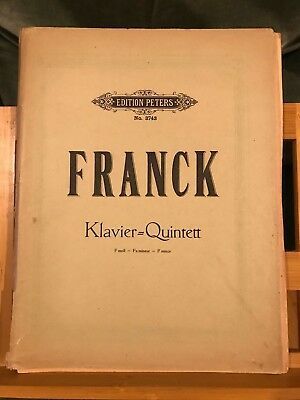#Cesar Franck
Text
youtube
Franck - String Quartet in D Major (1890)
It's been a long time since I updated this blog with a new post. Too long. And to be honest it's been a tough year for me personally. I've gone through different kinds of losses and had lost enthusiasm for this hobby of writing about music. Today was a pretty rough day emotionally and, if I'm allowed to use cliches, music "saved" me. At least this quartet brought me back into a music mindset, and I don't write about Franck that often here. Main reason is that, despite his esteem as a major or great composer of the later 19th century, his reputation relies on a handful of works from much later in his life. This String Quartet was his last completed work and it shows the hallmarks of his self-realized style; very lyrical and melancholic, constantly modulating and flowing through a stream of tonality. He had completed this after studying quartets by Beethoven, Schubert, and Brahms. Especially from Schubert is where we get unexpected modulations. Ironically this last work was the first to get him praise during his lifetime. And as with his other major works, the quartet is cyclical, with themes from each movement returning in the finale. And I hope this music lifts your spirits as well to end off 2023
Movements:
Poco Lento, Allegro
Scherzo: Vivace
Larghetto
Finale: Allegro molto
#Franck#Cesar Franck#string quartet#violin#viola#cello#violin music#cello music#viola music#string quartet music#chamber music#Franck String Qartet#Romanticism#Romantic era music#19th century music#Youtube
24 notes
·
View notes
Text

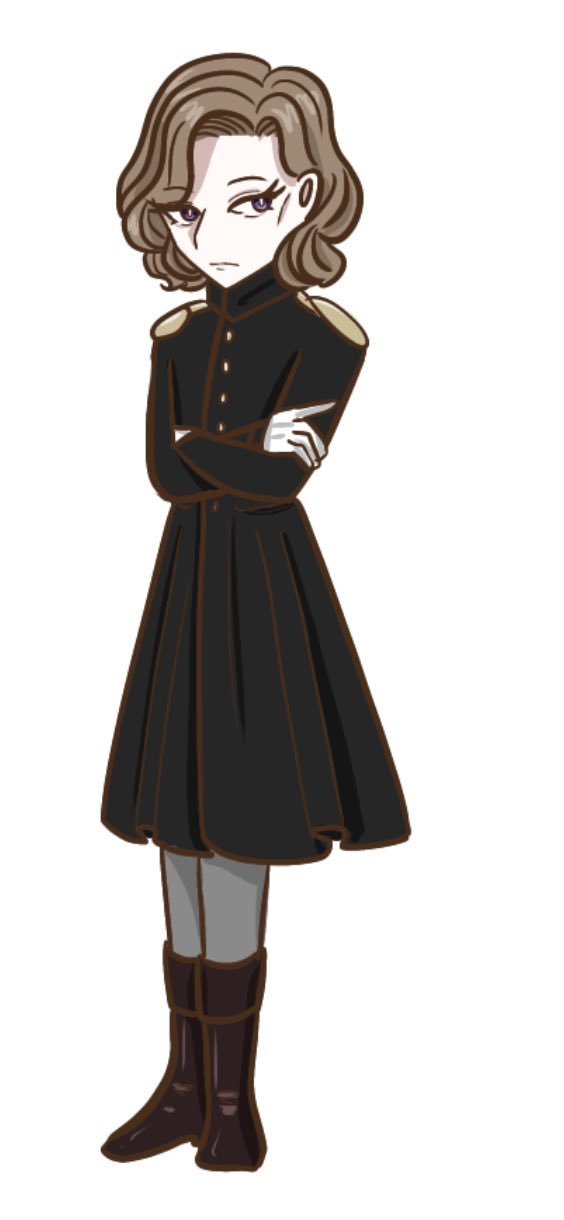

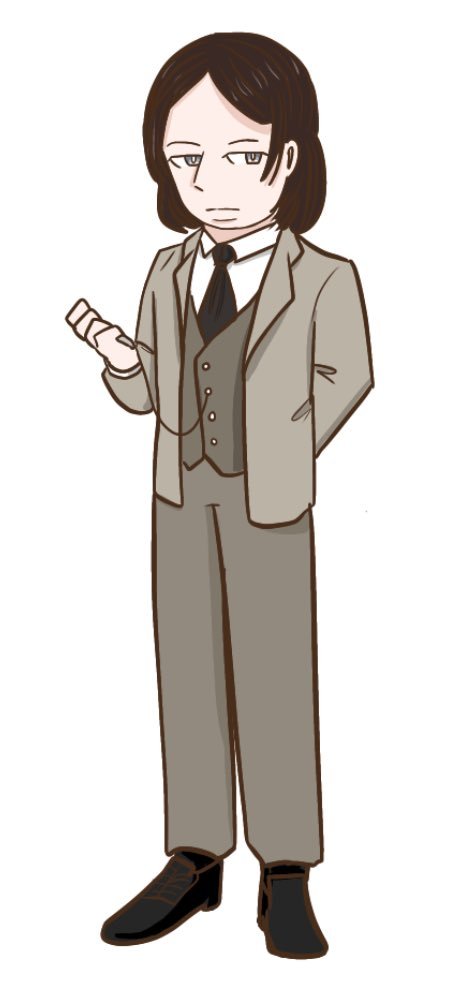





Twitter requests and doodles
#I swear to god that it wasn't my intention to draw liszt with a dress it was a request#felix mendelssohn#robert schumann#frederic chopin#olivier messiaen#cesar franck#wolfgang amadeus mozart
14 notes
·
View notes
Text
youtube
6 notes
·
View notes
Text
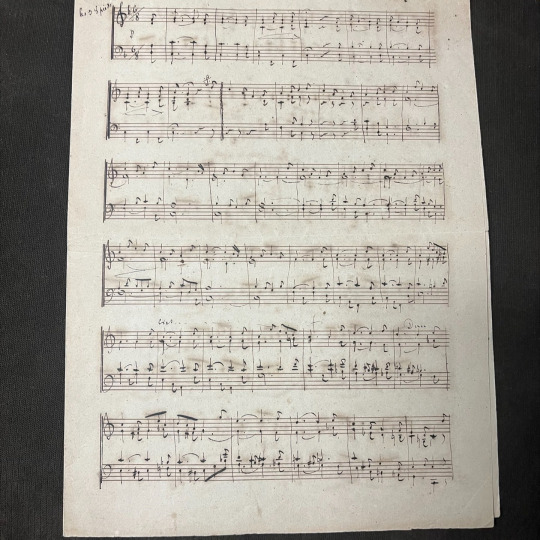


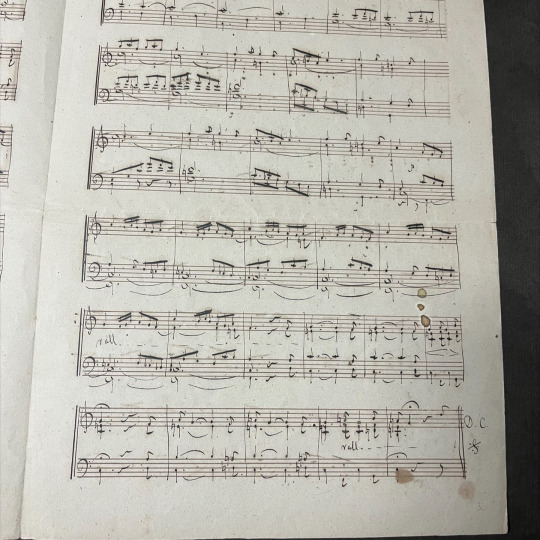
OTD in Music History: Composer, virtuoso pianist / organist, and pedagogue Cesar Franck (1822 – 1890) dies in Paris.
After showing remarkable promise as a child prodigy – he entered the Paris Conservatory at the age of just 15, and, within two years, he had already won a “Grand Prix d’Honneur” for an astounding feat of transposition in a sight-reading test as well as a first prize in fugue and a second prize in organ – Franck enjoyed a long and rather uneventful career working as a church organist, while also steadily teaching and composing on the side.
As an organist, Franck was particularly noted for his skillful improvisations; indeed, on the basis of a mere twelve major completed organ works, he is now widely considered to be one of the greatest composers for that instrument since J.S. Bach (1685 - 1750). Rather ironically, given his start as a child prodigy, however, Franck only reached his full maturity as a composer in his final years; it is his "Variations symphoniques" (1885), "Sonata in A Major for Violin and Piano" (1886), "Symphony in D Minor" (1888), "String Quartet in D Major" (1889), and series of solo organ pieces that mark him as one of the most powerful and important French composers of the latter 19th century.
Franck also left behind an important legacy as a teacher, and his most famous pupils include Henri Duparc (1848 – 1933), Vincent d’Indy (1851 - 1931), Ernest Chausson (1855 - 1899), and Geuillame Lekeu (1870 - 1894).
PICTURED: A beautiful autograph musical manuscript, written out by Franck, of his “Offertoire sur des Noels Bretons” (c. 1865) for harmonium.
#César Franck#Romantic composer#composer#pianist#organist#music teacher#teacher#music#Royal Conservatory of Liège#Romantic music#Romantic era#Romantic period#Paris Conservatoire#music history#classical music#symphony#orchestra#Cesar Franck#Franck#piano#violin#violin sonata#sonata
3 notes
·
View notes
Link
2 notes
·
View notes
Photo

Cumhurbaşkanlığı Senfoni Orkestrası
14 Ekim 2022 Cuma, 20:00
CSO Ana Salon
Chopin | Piyano Konçertosu
Cesar Franck | Re Minör Senfoni
2 notes
·
View notes
Text
youtube
César Franck - Les plaintes d'une poupée (1865)
0 notes
Text
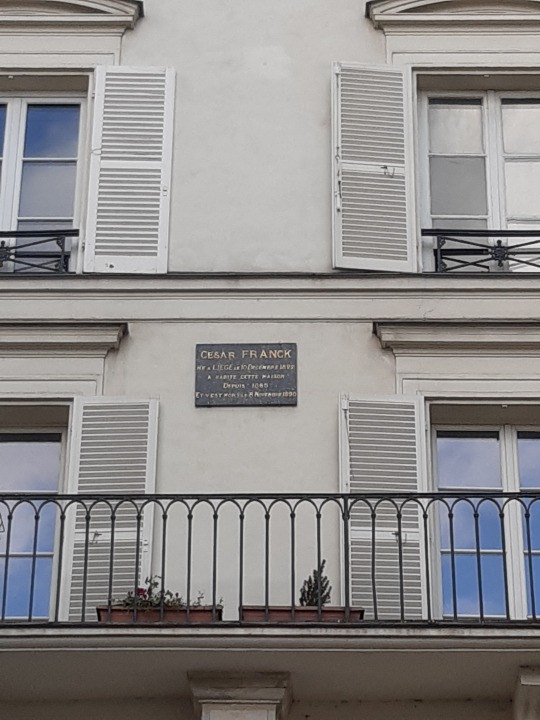

Plaque en hommage à : César Franck
Type : Lieu de résidence, Lieu de décès
Adresse : 95 boulevard Saint-Michel, 75005 Paris, France
Date de pose :
Texte : César Franck, né à Liège le 10 décembre 1822, a habité cette maison depuis 1865 et y est mort le 8 novembre 1890
Quelques précisions : César Franck (1822-1890) est un musicien français d'origine néerlandaise. Inscrit au Conservatoire de Liège dès son enfance, il y développe un talent remarquable pour la musique et donne des concerts dès son adolescence. Naturalisé français après que sa famille s'est installée à Paris, il s'impose progressivement comme une figure majeure de la vie musicale française du XIXème siècle, en particulier dans la musique de chambre. Il compose un très grand nombre d’œuvres musicales relevant de différents registres, les plus célèbres étant par exemple Les Djinns (1884, musique orchestrale) et Les Béatitudes (1881, oratorio élaboré sur une dizaine d'années). Il décède d'un emphysème du poumon, sans doute une conséquence d'un affaiblissement dû à un accident de la circulation survenu quelques mois plus tôt. Des rues portent son nom dans plusieurs villes, dont Liège et Paris, et une école de musique César-Franck existera également de 1935 à 1981. Cette plaque commémorative est située juste à côté d'une autre honorant l'homme politique Louis Marin, qui a habité le même immeuble quelques années après Franck.
0 notes
Text
Mi crítica del concierto de Alberto Martos y Myriam Sotelo ayer en el Alcázar.
#alberto martos#myriam sotelo#cesar franck#johannes brahms#noches en los jardines del alcázar#música#music
0 notes
Text

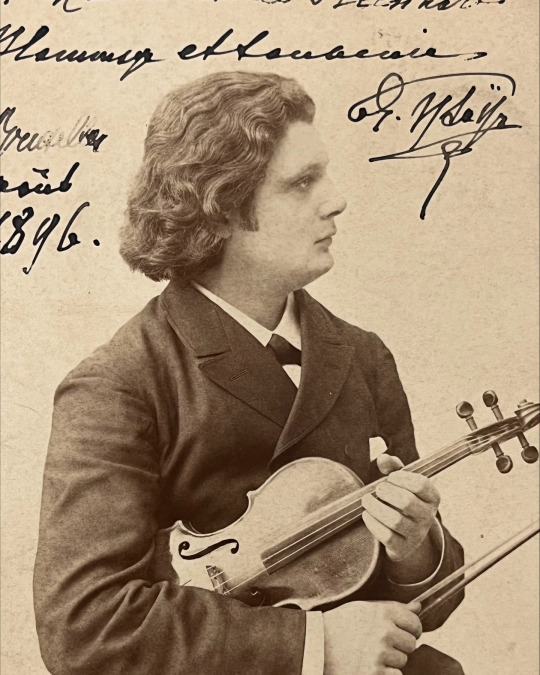

OTD in Music History: Legendary composer and violin virtuoso Eugene Ysaye (1858 - 1931) dies in Belgium.
One of the greatest violin virtuosos in history, Ysaye might well have received one of the single most wonderful wedding gifts in the entire recorded history of music: On the morning of this wedding, Cesar Franck (1822 - 1890) presented Ysaye and his bride with the score to Franck’s freshly-composed Violin Sonata, which was also dedicated to Ysaye.
Franck’s Violin Sonata is arguably his single greatest masterpiece, and it is undoubtedly one of the most famous and beloved violin sonatas ever written. The history of this work actually presents a rather intriguing mystery: In 1858 (the year that Ysaye was born), Franck had promised to compose a violin sonata for Franz Liszt’s (1811 – 1886) daughter, Cosima, on the occasion of her marriage to her first husband, pianist-conductor Hans von Bulow (1830 - 1894). This work never materialized – but the written correspondence documenting this promise has long fueled speculation that whatever efforts Franck put towards the promised 1858 piece (if any) might have ended up being incorporated into his 1886 masterwork.
While a normal person might have graciously accepted this lovely gift and then quickly turned his attention back to his nuptials, Ysaye (a true performer) instead commandeered a pianist and conducting a hurried rehearsal so that he could privately premiere the Violin Sonata *at his own marriage celebration*. (His bride’s reaction to this turn of events was not recorded.)
Ysaye publicly premiered the Violin Sonata at a concert in Brussels two months later, and it was his dedication to championing the work thereafter which helped to cement it as a fixture of the core violin repertoire.
PICTURED: A lovely cabinet photo showing the middle-aged Ysaye holding his violin, which he signed and inscribed to a friend in Brussels in 1896.
#Eugène Ysaÿe#Ysaÿe#virtuoso violinist#virtuoso#violinist#violin#Composer#classical composer#opera#classical music#music history#bel canto#aria#classical studies#conductor#The King of the Violin#Sonata#Cadenza#Waltz#Ballade#Orchestra#Concerto#Opera#chest voice#classical musician#classical musicians
36 notes
·
View notes
Photo

Philippe Bernold & Denis Pascal
24 Mayıs 2022 Salı, 20:00
CSO Yeni Konser Salonu
Bach | Flüt Piyano Sonatı BWV 1035
Mozart | Keman Piyano Sonatı KV301*
Schubert | La Belle Meunière
Debussy | Syrinx
Franck | Keman Piyano Sonatı*
*Flüt Piyano Uyarlaması
4 notes
·
View notes

